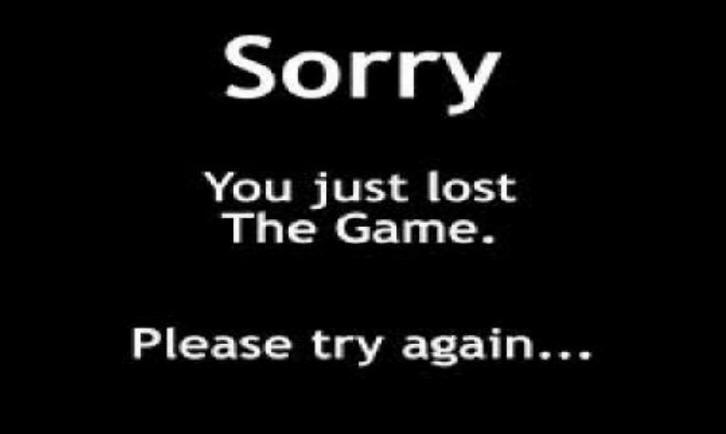The Game
is a mental game where the objective is to avoid thinking about The Game itself.
Thinking about The Game constitutes a loss, which, according to the rules of The
Game, must be announced each time it occurs. It is impossible to win most
versions of The Game; players can only attempt to avoid losing for as long as
they possibly can. The Game has been variously described as pointless and
infuriating, or as challenging and fun to play.
As of 2010, The Game is played by millions worldwide.
Rules
There are three commonly reported rules to The Game:
The common rules do not define a point at which The Game ends. However, one
reported variation states that The Game ends when a high ranking political
official announces publicly that
"The Game is up.” After you have announced your
loss, some variants allow for a grace period, during which you cannot lose the
game, which varies in time.
Strategies
Some players have developed strategies for making other people lose, such as
saying "The Game" out loud, by associating it with common items or phrases, or
writing about The Game on a hidden note, in graffiti in public places, or on
banknotes.
Psychology
The Game is an example of ironic processing,
in which attempts to avoid certain
thoughts make those thoughts more persistent.
Origin
The origins of The Game are uncertain. One theory is that when two men missed their last train and had to spend the whole night on a platform, they tried not to think about their situation and whoever did first, lost. Another is that it was invented in London in 1996 "to annoy people". The reported earliest known reference on the Internet is from 2002. The idea behind The Game is similar to Douglas Hofstadter's number P, the number of minutes per month a person thinks about the letter P.
The Game can only be ended under two unique circumstances. In the first scenario, the Prime Minister of Great Britain goes on national television and announces "I just lost The Game." As soon as this happens, everybody who has watched said broadcast loses The Game as well, and consequently one may lose The Game one more time before The Game ends. After the announcement, if a person who has lost The Game loses it again, he has not lost it really, because
